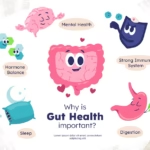Preventing a stroke involves managing risk factors through lifestyle changes and medical care. Here are 8 key strategies to help reduce your risk:
1. Control High Blood Pressure

- Hypertension is the leading cause of strokes.
- Monitor blood pressure regularly and follow your doctor’s advice (medication, diet, exercise).
- Aim for <120/80 mmHg (or as recommended by your doctor).
2. Manage Diabetes & Blood Sugar

- High blood sugar damages blood vessels, increasing stroke risk.
- Keep HbA1c levels in check (ideally <7% for diabetics).
- Eat a low-glycemic diet and exercise regularly.
3. Lower Cholesterol & Reduce Plaque Buildup
- High LDL (“bad”) cholesterol can clog arteries.
- Opt for a heart-healthy diet (fiber, healthy fats, limited saturated/trans fats).
- Statins or other medications may be needed if levels are high.
4. Quit Smoking & Avoid Secondhand Smoke
- Smoking doubles stroke risk by damaging blood vessels and increasing clot formation.
- Seek help (nicotine patches, counseling, or apps) if needed.
5. Maintain a Healthy Weight
- Obesity increases stroke risk by promoting hypertension, diabetes, and inflammation.
- Aim for a BMI of 18.5–24.9 and a waist circumference <40″ (men) or <35″ (women).
6. Exercise Regularly

- Physical activity improves circulation, lowers blood pressure, and helps manage weight.
- Aim for 150+ minutes/week of moderate exercise (brisk walking, swimming, cycling).
7. Eat a Stroke-Preventive Diet
- Focus on:
- Fruits, vegetables, and whole grains (high in potassium, fiber, antioxidants).
- Low-sodium foods (excess salt raises blood pressure).
- Healthy fats (avocados, nuts, olive oil, fatty fish like salmon).
- Consider the DASH or Mediterranean diet.
8. Limit Alcohol & Avoid Excessive Drinking
- Heavy drinking raises blood pressure and stroke risk.
- Stick to ≤1 drink/day (women) or ≤2 drinks/day (men)—or avoid alcohol altogether.
Bonus Tips:
- Treat Atrial Fibrillation (AFib) (an irregular heartbeat that can cause clots).
- Reduce Stress (chronic stress may contribute to hypertension).
- Get Enough Sleep (aim for 7–9 hours/night; poor sleep is linked to stroke risk).
By addressing these factors, you can significantly lower your chances of having a stroke. If you have a family history or other risks, consult a doctor for personalized advice.


